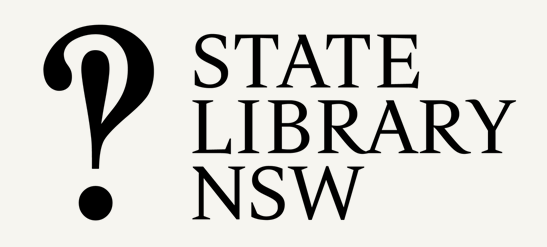Protocol 11 deals with repatriating original records held in our collections that were created by, about or with the input of particular Aboriginal and Torres Strait Islander communities. It recognises that holding these records in institutions effectively alienates them from the people to whom they are most relevant, and that some collection materials may have been taken from a community’s control or created by theft or deception.
Certain records may be of particular significance to a community and ready access to them can be vital for the community’s knowledge of itself. Communities may approach libraries to either provide copies of these records or to repatriate the original records themselves.
Protocol 11 asks us to respond sympathetically and cooperatively to any request from an Aboriginal or Torres Strait Islander community for paper or digital copies of specific records, and to undertake meaningful consultation with communities, with the aim of repatriating original records where it can be established that they were taken from control of the community or created by theft or deception. Libraries may ask the community’s permission to hold copies of repatriated records but should respect the community’s decision if permission isn’t given.
This protocol also describes the role of libraries in assisting Aboriginal and Torres Strait Islander communities to plan and maintain suitable physical and/or digital keeping places for repatriated records and copies of records. Keeping places should be designed and located to appropriately meet the community’s needs, with appropriate storage for long-term preservation.
Case studies
> A different perspective on history: collaborating with a remote community
State Library of Queensland partnered with the Palm Island community and other collecting institutions to create an exhibition telling the community’s side of the island’s history.
> Consulting with Elders to improve collection information and management
The National Library of Australia learned many valuable lessons from working with Pitjantjatjara Elders to find out more about heritage photographs in the library’s collection.
> Developing a repatriation policy
Having a clear Repatriation to Aboriginal and Torres Strait Islander Communities Policy has enabled the State Library of South Australia to digitally repatriate collection items at minimal or no cost, using a clear and consistent process.
> Storylines: reconnecting collections to communities, families and individuals
Storylines is a State Library of Western Australia project that aims to break down barriers to Aboriginal and Torres Strait Islander peoples accessing collection materials, and recognise the importance of reconnecting this material to communities, families and individuals.
Further resources
Articles and presentations
Gather – State Library of New South Wales
Created with Mukurtu, Gather connects Aboriginal communities with collections and stories from the State Library of NSW.
Storylines – State Library of Western Australia
Storylines is a project to explore, identify and return Aboriginal heritage material from our collections.
Opening Archives: Respectful Repatriation – Kimberly Christen and Mary Pugh (The American Archivist, 2011)
While digital technologies allow for items to be repatriated quickly, circulated widely, and annotated endlessly, these same technologies pose challenges to some indigenous communities who wish to add their expert voices to public collections and also maintain some traditional cultural protocols for the viewing, circulation, and reproduction of some materials. This case study examines one collaborative archival project aimed at digitally repatriating and reciprocally curating cultural heritage materials of the Plateau tribes in the Pacific Northwest.
Ara Iritja
“Over the last century, many visitors to the Ngaanyatjarra, Pitjantjatjara and Yankunytjatjara lands in Central Australia collected and permanently removed artefacts, photographs, film footage and sound recordings. While some of these materials were filed away in the archives of public institutions, others were ‘lost’ in family photo albums or packed away in old suitcases and boxes. Many of these materials are of great importance to Anangu (Ngaanyatjarra, Pitjantjatjara and Yankunytjatjara people). Ara Irititja (‘stories from a long time ago’) officially commenced in 1994 to repatriate ‘lost’ material for Anangu. By 2018, Ara Irititja has tracked down hundreds of thousands of historical and cultural items and makes them available to Anangu through interactive software.”
Trust in Scholarly Communications and Infrastructure: Indigenous Data Sovereignty – Katharina Ruckstuhl (Frontiers in Research Metrics and Analytics, 2022)
This article examines data sovereignty from the perspective of Indigenous peoples, focusing on data held in government or state-funded research organisations, including Libraries, galleries and museums.
Self-determination and archival autonomy: advocating activism – E. Daniels, J. Evans, G. McCarthy, S. McKemmish (Archival Science, 2015)
“This paper explores the role of archival activism in supporting social movements linked to human rights and social justice agendas. Taking a records continuum perspective, it presents an Australian case study relating to the Stolen Generations, Former Child Migrants, Forgotten Australians and Forced Adoption communities to illustrate imperatives for advocacy and activism in support of the ‘archival autonomy’ of communities.”
Deciphering Arrernte archives: The intermingling of textual and living knowledge – Jason Gibson, Shaun Angeles, Joel Liddle (University of Hawai’i Press, 2019)
Interviews exploring some of the issues Arrernte peoples confront as they work through archives, including the limitations of conventional cataloguing requirements and the importance of reading archival texts in a way that sees them placed and tested against the knowledge of Elders, and the role of digital technologies in the future dissemination of cultural materials.
Audio and video
Mukurtu: an online dilly bag for keeping Indigenous digital archives safe – The Conversation (podcast, 2019)
Mukurtu is an online system that aims to help Indigenous communities conserve stories, videos, photographs, songs, word lists and other digital archives. In this podcast, Kirsten Thorpe and Richard Neville explain why Mukurtu is needed, how it’s being used and what’s at stake if we don’t find better ways to empower Indigenous people with the skills and tech to conserve and manage digital archives.
See also: Reconnecting collections to communities – State Library of New South Wales
The race against the clock to save rare recordings of Indigenous languages – SBS News (video, 2019)
The magnetic tapes on which thousands of hours of recordings in Indigenous languages held by the National Archives of Australia are at risk of becoming unplayable if they are not digitally preserved by 2025.
True as nan: Recognising the authority of Aboriginal memory in our GLAM spaces – Damien Webb (audio, AIATSIS, 2017)
Damien Webb talks about the State Library of Western Australia’s Storylines Project, and the impacts of engaging directly with Indigenous communities to tell their stories.
Shaun Angeles on preservation of remote Indigenous collections – National Film and Sound Archive (video, 2015)
Shaun Angeles from the Strehlow Research Centre, discusses the importance of preserving Indigenous audiovisual collections created and stored in remote communities.
Case studies
Preserve, Strengthen and Renew in community – AIATSIS (2016-2020)
“AIATSIS initiated the Preserve, Strengthen and Renew in Community (PSR) project in 2016 in order to address the significant under-recognition and under-protection of intangible expressions of Indigenous culture and heritage. PSR project activities were carried out between 2017 and 2019 (with significant planning beforehand) – as a means of exploring why access to cultural material can be so challenging and to identify practical options for changing current individual, community and institutional practices.”









